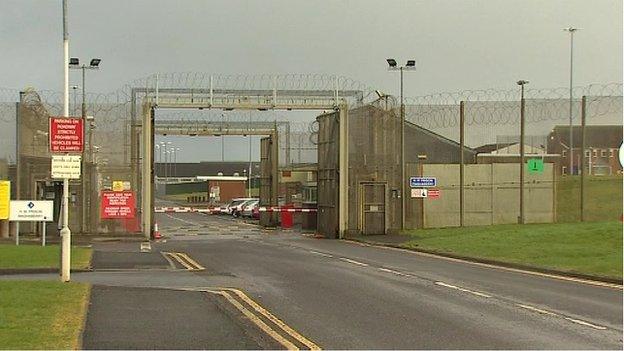Maghaberry: Prisoners say listeners scheme helped them survive
- Published
Maghaberry inmate John, who was convicted of manslaughter, says listener scheme gave him hope in a time of despair.
A convicted killer and a drug trafficker have said a scheme that uses prisoners to help fellow inmates with mental health problems helped them survive life behind bars.
They said talking with so-called listeners in Maghaberry Prison was crucial in tackling serious depression.
One of the men has served six and a half years of a manslaughter sentence after killing a man in a fight.
He does not want to be identified, so we have agreed to call him John.
He began using the service run by the Samaritans shortly after being jailed, and last used it two and a half years ago.
John has a daughter who was born while he was in prison, and said he struggled to cope without his family and was haunted by what he had done.

The Listeners scheme runs at Northern Ireland's high security jail, Maghaberry Prison
"I came into jail for killing somebody and I had sort of no hope in here, and I ended up turning to drugs for the first couple of years and then after that my mental health started deteriorating," he said.
"I was really ashamed of what I had done and it took me a few years to deal with it."
John contacted a listener after a prison officer told him the service was available if he was feeling depressed.
'Light at the end of the tunnel'
At his lowest point he met a listener three times a week for a number of months.
Former Maghaberry inmate Michael Irwin says thanks to listener training he knows the "dark moments" are only temporary.
"l felt suicidal a lot at that time. I was feeling really bad, really bad," he explained.
He said the meetings had a huge impact.
"I now see light at the end of the tunnel, I'm making plans for the future. At that time I had no plans, I more or less just had no hope," he said.
"Probably if I hadn't been able to contact the listener service I could have maybe self-harmed and stuff like that, so it made a big difference to my life.
"If you're sitting in your cell in despair and you've nobody to talk to, it's just going to keep going over and over [in your mind]. If you've a listener to talk to it takes you out of that frame of mind."
Michael Irwin also used the listener service after being sentenced to 12 years in prison for drug trafficking in 2007.
He spent the first two years in a jail in England before being transferred back to Magilligan prison near Limavady.
Michael said he struggled during those first two years because he was cut off from his family and friends.
He met a listener every night for a month, and the two men became friends.
"The impact of those meetings was amazing," he said.
"Daily life in prison is hard. People don't really understand, there's so many pressures.
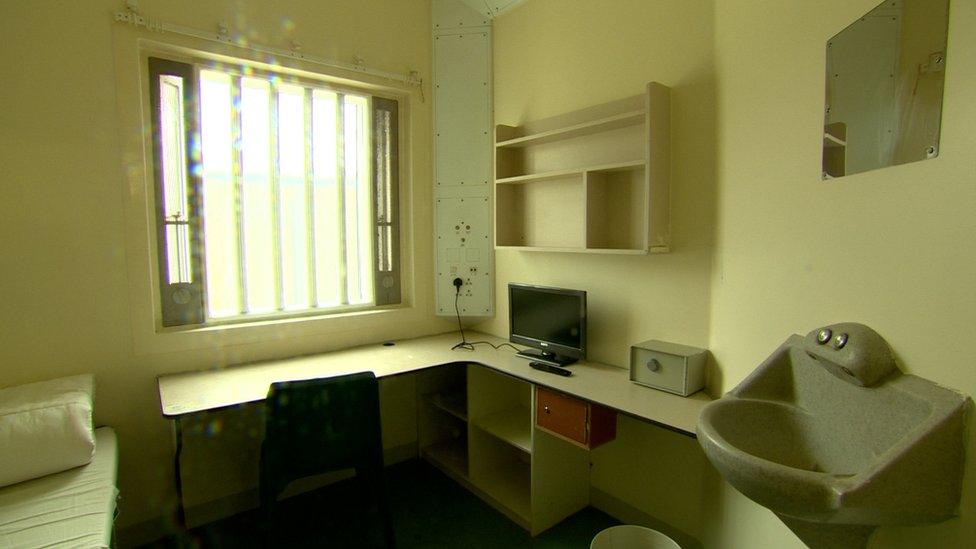
The inmates say it is hard to appreciate how difficult life in prison is
"It doesn't take much, if you've got all this pent up anger and frustration, with lots of doubts bottled up, it doesn't take much to trigger it.
"If you've got a worry, you can just go and talk to one of these guys. Whenever somebody is just sitting there listening, you can just unravel, get all of your worries off your chest, and they aren't judging you or telling you what to do.
"That made a huge difference. Mentally, it helped me clear the air."
Having turned to a listener for help, Michael later volunteered to be one himself after being transferred back to Magilligan.
He said the fact that he had used the service made it easier for him to talk to prisoners seeking help.
"Being in somebody else's shoes or walking the walk, you hear that in prison a lot," he said.
"You know, 'how do you know how I feel if you haven't done it, you know nothing about my life'.
"I was able to say, well I sort of do. I was able to relate a hell of a lot more."
Michael said the work was often difficult because of the nature of the stories he was told, but added that he also gained from the experience.
"It can be deeply hurtful, but it can also be very rewarding whenever somebody comes through it and whenever you meet them a couple of days later or a week later and they're going 'what about you mate, thanks for that the other day', and you see the smile on the face.
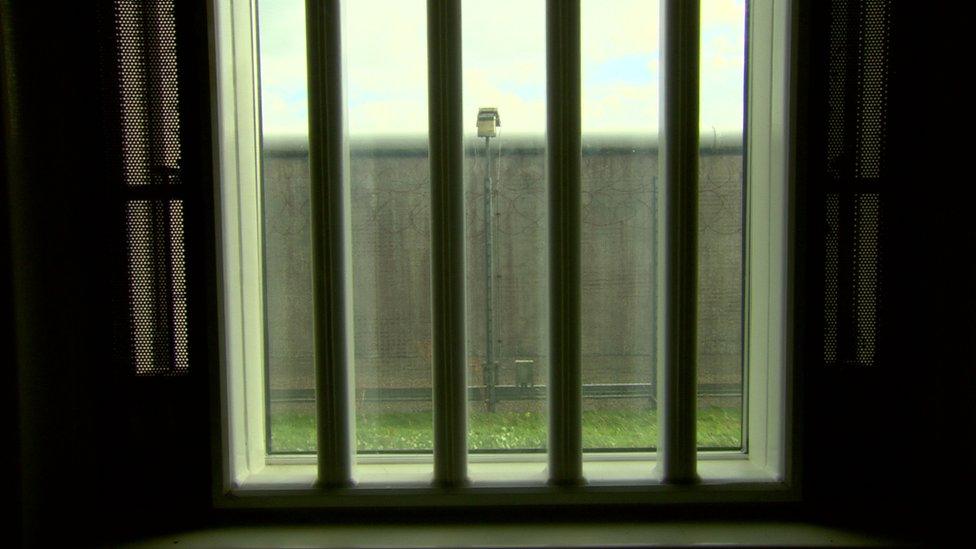
The inmates can tell prison officers when they want to talk to a listener
"It gives you purpose. And obviously that is very lacking in prison, so you hold on to those things."
That sense of purpose helped motivated Michael to pursue education while behind bars and he completed a degree in criminology while in Magilligan.
Since his release after serving half of his sentence, he has been studying for a masters in criminology and plans to take it a step further and do a PhD.
He also still assists the Samaritans by helping train volunteers who deal with calls from prisoners needing help.
- Published12 October 2016
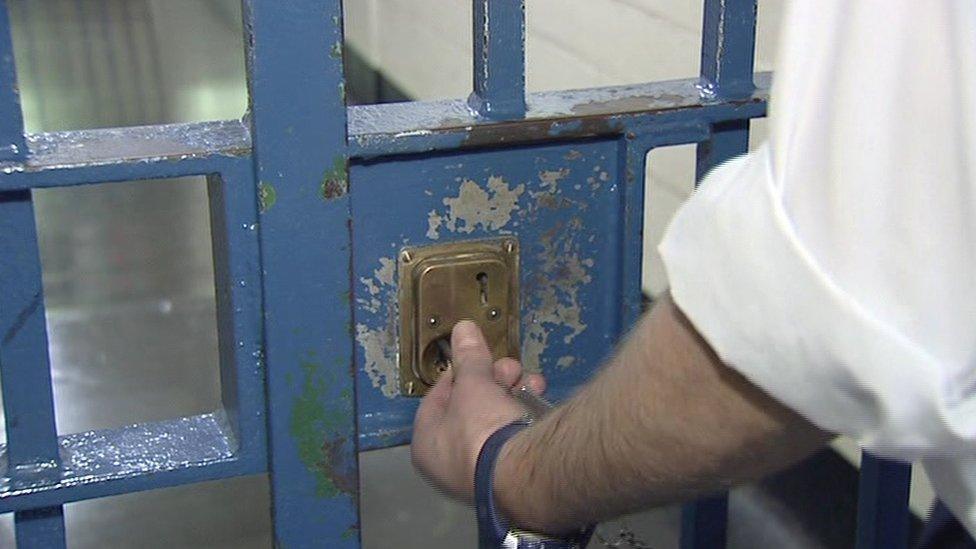
- Published14 September 2016

- Published14 September 2016

- Published26 August 2016

- Published5 November 2015
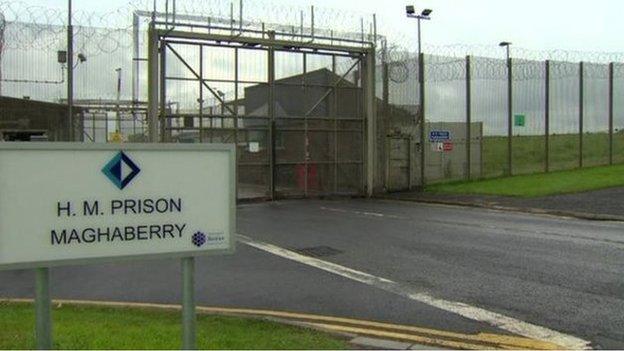
- Published6 August 2014
